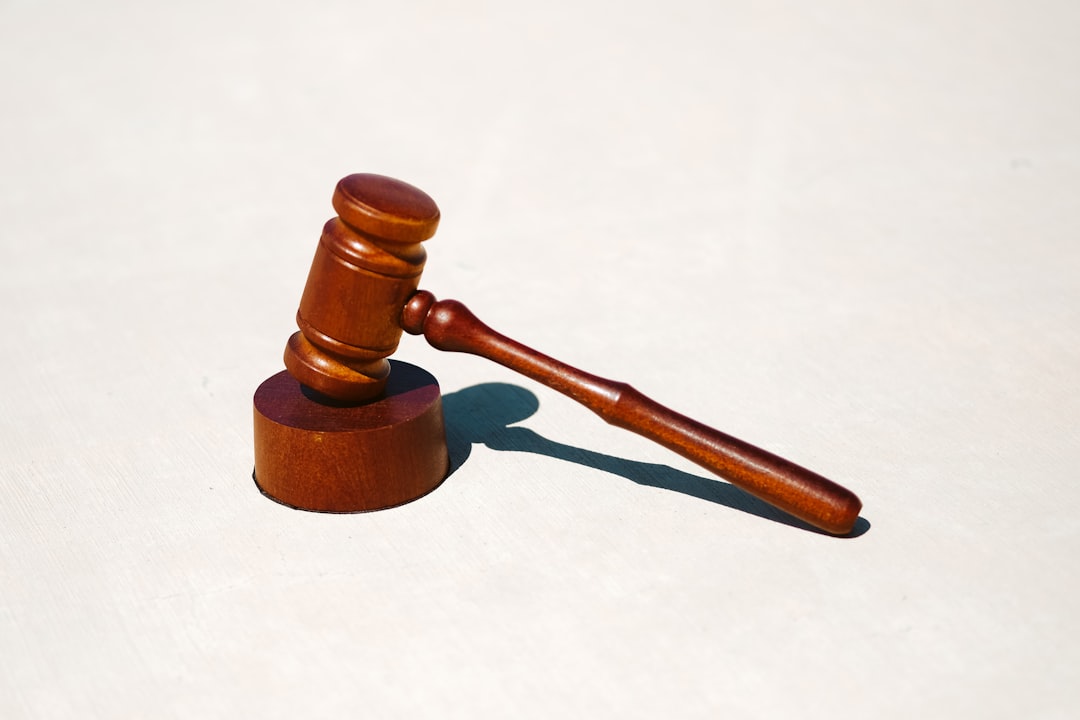Arvada, Colorado residents face a surge in robocalls leveraging social media data and algorithms for precise targeting. While local regulations exist, robocallers use public profiles to micro-target individuals based on interests, location, and political views. Residents disturbed by these calls can explore legal options, including potential lawsuits under Colorado's telemarketing and privacy laws, to combat this modern form of harassment and learn if they can sue for robocalls in Colorado.
In the digital age, robocallers have expanded their tactics, leveraging social media platforms to target residents in Arvada, Colorado. This introduction explores how these automated calls, often unwanted and intrusive, utilize popular social networks as a means of communication. We delve into the strategies employed, the impact on local communities, and provide insights into legal options, particularly regarding Can I Sue For Robocalls in Colorado? Understanding these trends is vital for residents seeking to protect their privacy.
Robocall Strategies on Social Media Platforms

Robocallers have adapted their tactics to leverage social media platforms as a powerful tool for targeting and engaging potential customers, including residents in Arvada, Colorado. They often gather contact information from various online sources, such as public social media profiles, to build extensive databases of phone numbers. By using sophisticated algorithms, these automated calling systems can quickly dial through thousands of numbers, ensuring high reach and coverage.
Social media platforms provide a direct line of communication with users, allowing robocallers to transmit pre-recorded messages or live sales pitches at scale. They may use targeted advertising to reach specific demographics or employ geotargeting to focus on areas like Arvada. Additionally, by monitoring online conversations and user interactions, they can identify trends and tailor their messaging accordingly. This strategy raises concerns among residents in Colorado who wish to curb such unwanted calls, prompting discussions about legal options, including the potential to sue for robocalls.
Targeting Residents in Arvada, Colorado

In the digital age, robocallers have found new avenues to target residents in Arvada, Colorado. With advanced technology and social media data at their disposal, these automated calling systems can now tailor their messages to specific demographics. By utilizing public social media profiles, robocallers gain insights into individuals’ interests, locations, and even political leanings, allowing them to precisely direct marketing or political calls to Arvada residents. This targeted approach raises concerns among locals about privacy and the potential for abuse of personal data.
Arvada, like many cities in Colorado, has implemented regulations to protect its citizens from unwanted robocalls. However, with social media serving as a powerful tool for micro-targeting, residents may face challenges in halting these calls. Those who believe they have been wrongfully targeted can explore legal avenues, including potential lawsuits under Colorado laws that address telemarketing practices and privacy rights. The ability to sue for robocalls in Colorado provides a measure of recourse for those disturbed by this modern form of harassment.
Legal Recourse: Can I Sue For Robocalls?

In the age of digital communication, robocalls have become a pervasive issue for many Arvada residents. While many people know how to block or report these automated calls, an often-overlooked question remains: can I sue for robocalls? The answer is yes, according to Colorado’s telephone consumer protection laws. These laws are designed to prevent businesses from making unsolicited phone marketing calls and offer legal recourse for those who feel their privacy has been invaded.
If you’ve received unwanted robocalls, you may have the right to take action. You can file a complaint with the Federal Trade Commission (FTC) or the Colorado Public Utilities Commission (PUC). These agencies track and investigate consumer complaints about telemarketing practices. Additionally, some states allow individuals to sue for damages caused by robocalls, which could include monetary compensation for your trouble and any financial loss incurred due to the calls.






